
Dec 5, 2015 | Focolare Worldwide
 What pushed you to become a priest? A 13-year-old girl asked Don Marco, during an informal interview on the many “anecdotes” that have dotted his life and priesthood. «I was not counting on becoming a priest. I had only asked some advice from the people who were older and had more worldly experience than me, so as to see what humanity needs most today. I could have become a teacher or an engineer. I also liked architecture, or travelling. I liked so many things, and was doing well in school. Those were the years of the economic boom and I had all the possibilities. I was uncertain since I had received a university scholarship, but I wanted to be useful. So I booked an appointment with the Bishop. I wanted to ask him what he thought, about what humanity needs most. He was so busy that he did not have time to talk to me, and I was alone for hours, so much so that I thought: “surely humanity doesn’t need me, but perhaps not even the church needs me, and whoever said that you are so important? Perhaps I am not worth anything… but I love Jesus and will love him always, even if I turned out to be useless.” Finally, when the Bishop found time to speak with me, and asked me what I wanted, I didn’t want anything anymore! And so I told him that I could probably collaborate… He was surprised, undecided, but in the end he said: “Yesterday I laid the cornerstone of a church. When this church, will be finished six years from now, it will have no priest. Would you like to be the parish priest of that church?” But my first experience had been a choice of God, first of all, and not that of becoming a priest, but to follow God and love Jesus, even if I was useless, since Jesus in the end, will make you do something. » (Fr. Marco – Italy)
What pushed you to become a priest? A 13-year-old girl asked Don Marco, during an informal interview on the many “anecdotes” that have dotted his life and priesthood. «I was not counting on becoming a priest. I had only asked some advice from the people who were older and had more worldly experience than me, so as to see what humanity needs most today. I could have become a teacher or an engineer. I also liked architecture, or travelling. I liked so many things, and was doing well in school. Those were the years of the economic boom and I had all the possibilities. I was uncertain since I had received a university scholarship, but I wanted to be useful. So I booked an appointment with the Bishop. I wanted to ask him what he thought, about what humanity needs most. He was so busy that he did not have time to talk to me, and I was alone for hours, so much so that I thought: “surely humanity doesn’t need me, but perhaps not even the church needs me, and whoever said that you are so important? Perhaps I am not worth anything… but I love Jesus and will love him always, even if I turned out to be useless.” Finally, when the Bishop found time to speak with me, and asked me what I wanted, I didn’t want anything anymore! And so I told him that I could probably collaborate… He was surprised, undecided, but in the end he said: “Yesterday I laid the cornerstone of a church. When this church, will be finished six years from now, it will have no priest. Would you like to be the parish priest of that church?” But my first experience had been a choice of God, first of all, and not that of becoming a priest, but to follow God and love Jesus, even if I was useless, since Jesus in the end, will make you do something. » (Fr. Marco – Italy)
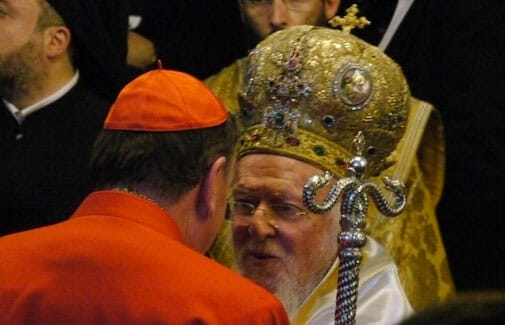
Dec 2, 2015 | Focolare Worldwide, Senza categoria

(C) CSC Audiovisivi
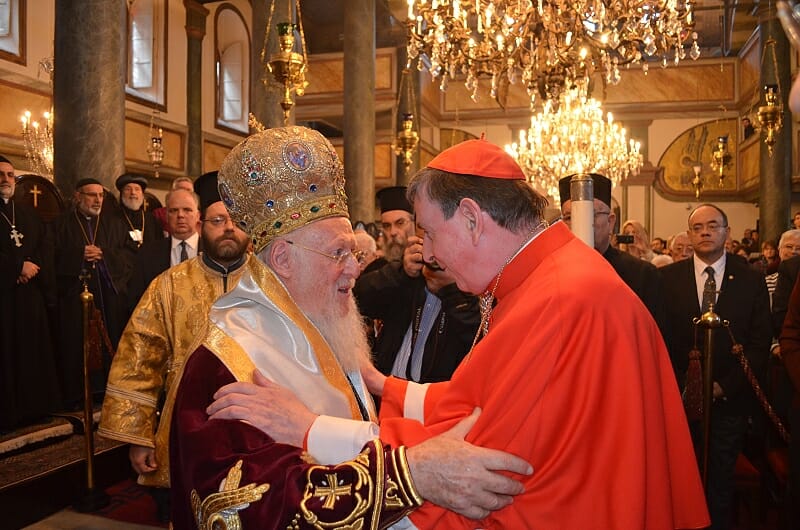
Dec 2, 2015 | Focolare Worldwide
 According to Pope Francis, the four tenets of the ecumenical undertaking are ecumenism of charity, concreteness, truth and spirituality. In his in-depth dissertation, Cardinal Kurt Koch, President of the Pontifical Council for the Promotion of Unity among Christians, delineated the objective of the total unity of the churches as the perspective of ecumenical dialogue. According to Pope Francis, in line with his predecessors “divisions are a scandal, and the ecumenical endeavour should, in short, target the common celebration of the Eucharist and reach unity always through the reconciliation of our differences.” Unity is a journey, and his deep conviction is based on the fact that: “Unity will not come about as a miracle, but as a journey during which the Holy Spirit will achieve unity.” The Pope places as first and foremost, fraternal dialogue in words and actions, inspired by charity: the encounter of Christians of different churches since “the truth is an encounter between persons. The truth is not concocted in a laboratory, but in concrete life, in the search of Jesus who will help us find it.” Theological dialogue is important but is always interpreted as an “exchange of gifts”, which is just a “mere theoretical exercise” but helps us to know the basics of mutual traditions so as to understand, and at times, also learn from them.” Above all, we can cooperate concretely by praying and working together in searching for peace, protecting creation, helping the poor, and defending our religious freedom, marriage and the family. But unity “is primarily a gift of God, which we must always pray for.” Today, many Christians are persecuted. Why does the Pope stress the importance of ecumenism of blood? “We have to be aware that in the world, 80% of those persecuted in the name of faith are Christians. There are more persecutions today than in the first centuries of Christianity. This fact should stir up a great solidarity between all the churches because the martyrs are not persecuted because they are Catholics, Armenians, Orthodox, Anglicans, Pentecostals, or Lutherans, but because they are Christians. Their blood does not divide but unites. The martyrs are already celebrating the first communion in heaven, which we need to find once again on earth. They will help us on our journey towards unity.” After 50 years of preparation, in 2016 the Pan-Orthodox Synod will take place. What effects will this have on the ecumenical movement? “If the Orthodox churches will regain a slightly stronger unity among them, this will be a great help also for ecumenism and for progress toward the joint celebration of the Eucharist between Catholics and the Orthodox. I am convinced the Ecumenical Patriarch Bartholomew is working with all his heart for this Pan-Orthodox Synod. And we, as the Catholic Church, want to help as much as possible and are praying intensely for it.” The 34th Convention of the Ecumenical Bishops of the Focolare has come to an end. How will these types of meetings contribute to unity among the churches? “The ministry of the bishops is a ministry of unity in their own Churches and unity among the churches is, likewise a big obligation for all Christians because this is what the Lord wants of us. And all the bishops want to fulfill God’s will. Meetings like this can help us build that unity, about which the various churches take on different concepts. The endeavour to reach a unified idea through dialogue is very important at this stage of ecumenism. And I am really grateful to the Focolare for its commitment in the field of ecumenism.”
According to Pope Francis, the four tenets of the ecumenical undertaking are ecumenism of charity, concreteness, truth and spirituality. In his in-depth dissertation, Cardinal Kurt Koch, President of the Pontifical Council for the Promotion of Unity among Christians, delineated the objective of the total unity of the churches as the perspective of ecumenical dialogue. According to Pope Francis, in line with his predecessors “divisions are a scandal, and the ecumenical endeavour should, in short, target the common celebration of the Eucharist and reach unity always through the reconciliation of our differences.” Unity is a journey, and his deep conviction is based on the fact that: “Unity will not come about as a miracle, but as a journey during which the Holy Spirit will achieve unity.” The Pope places as first and foremost, fraternal dialogue in words and actions, inspired by charity: the encounter of Christians of different churches since “the truth is an encounter between persons. The truth is not concocted in a laboratory, but in concrete life, in the search of Jesus who will help us find it.” Theological dialogue is important but is always interpreted as an “exchange of gifts”, which is just a “mere theoretical exercise” but helps us to know the basics of mutual traditions so as to understand, and at times, also learn from them.” Above all, we can cooperate concretely by praying and working together in searching for peace, protecting creation, helping the poor, and defending our religious freedom, marriage and the family. But unity “is primarily a gift of God, which we must always pray for.” Today, many Christians are persecuted. Why does the Pope stress the importance of ecumenism of blood? “We have to be aware that in the world, 80% of those persecuted in the name of faith are Christians. There are more persecutions today than in the first centuries of Christianity. This fact should stir up a great solidarity between all the churches because the martyrs are not persecuted because they are Catholics, Armenians, Orthodox, Anglicans, Pentecostals, or Lutherans, but because they are Christians. Their blood does not divide but unites. The martyrs are already celebrating the first communion in heaven, which we need to find once again on earth. They will help us on our journey towards unity.” After 50 years of preparation, in 2016 the Pan-Orthodox Synod will take place. What effects will this have on the ecumenical movement? “If the Orthodox churches will regain a slightly stronger unity among them, this will be a great help also for ecumenism and for progress toward the joint celebration of the Eucharist between Catholics and the Orthodox. I am convinced the Ecumenical Patriarch Bartholomew is working with all his heart for this Pan-Orthodox Synod. And we, as the Catholic Church, want to help as much as possible and are praying intensely for it.” The 34th Convention of the Ecumenical Bishops of the Focolare has come to an end. How will these types of meetings contribute to unity among the churches? “The ministry of the bishops is a ministry of unity in their own Churches and unity among the churches is, likewise a big obligation for all Christians because this is what the Lord wants of us. And all the bishops want to fulfill God’s will. Meetings like this can help us build that unity, about which the various churches take on different concepts. The endeavour to reach a unified idea through dialogue is very important at this stage of ecumenism. And I am really grateful to the Focolare for its commitment in the field of ecumenism.”
By our correspondent Aurelio Molè
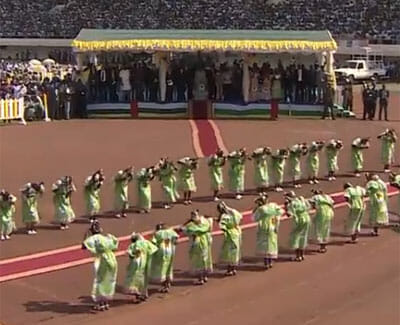
Dec 1, 2015 | Focolare Worldwide
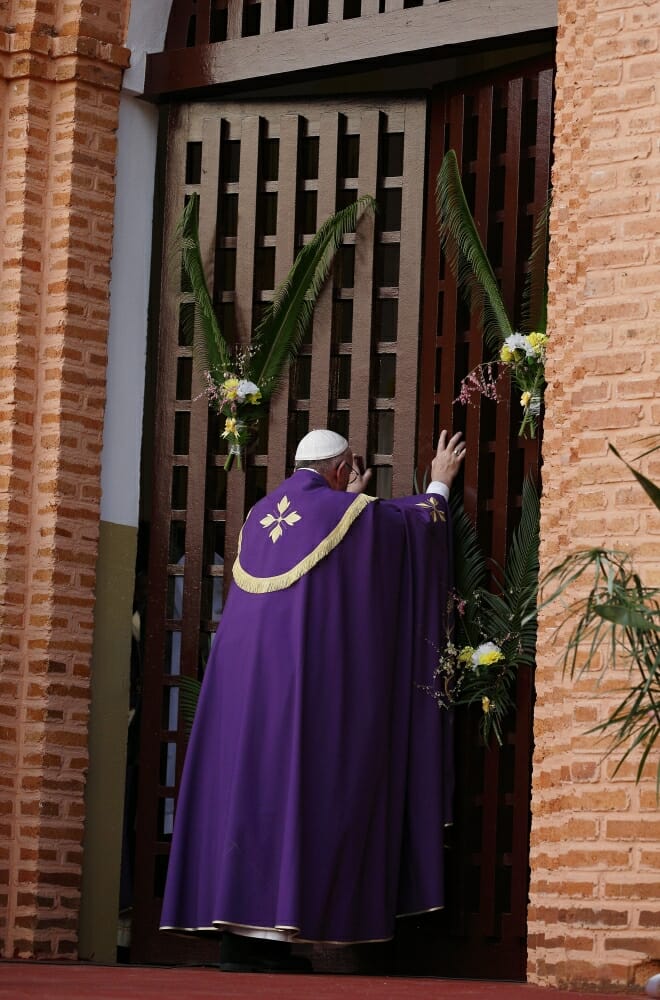 Today Bangui becomes the spiritual capital of the world. The Holy Year of Mercy is anticipated in this land, a land that suffers from several years of hatred and war, misunderstanding and lack of peace. But there are also all the lands that are bearing the cross of war. Bangui becomes the spiritual capital of the prayer to the Father for mercy. All of us ask for peace, mercy, reconciliation, pardon and love. For Bangui, for the Central African Republic, for the whole world, for the lands that suffer from war, we ask for peace!” These were the words of Pope Francis before the opening of the Holy Door in the Cathedral of Bangui, on November 29. Then, in a gesture charged with meaning, the Pope was the first to walk alone through that Holy Door. While the Pope is still on his return flight we have telephoned Bangui Geneviève Sanzé in Bangui. She is originally from the Central African Republic and is a member of the Pontifical Council for the Laity, and lends her services to the International Centre of the Focolare in Italy. “Nobody could have imagined what happened in the people,” she told us. “He brought back joy to us, peace!” Expectations were high, both on the Christian and the Muslim side: “Now, the man of God comes,” they said. “This is the supreme opportunity that God is sending.” It was a dangerous journey for security reasons, but “even though everyone was worried and the whole world discouraged it, the Pope wished to come.” “And the people feel that he came for them, not for some task or special event, but as a father who wants to encourage,” Geneviève explained. “He went to the Christians, Catholic and Protestant, but also to the Muslims. All of us prepared for his coming with enthusiasm, Christians on one side and Muslims on the other and the Pope went to everyone. Many thought it would have been better if he cancelled the visit to the Mosque located in a quarter where no Christian can enter. But he went anyway and was outstanding.”
Today Bangui becomes the spiritual capital of the world. The Holy Year of Mercy is anticipated in this land, a land that suffers from several years of hatred and war, misunderstanding and lack of peace. But there are also all the lands that are bearing the cross of war. Bangui becomes the spiritual capital of the prayer to the Father for mercy. All of us ask for peace, mercy, reconciliation, pardon and love. For Bangui, for the Central African Republic, for the whole world, for the lands that suffer from war, we ask for peace!” These were the words of Pope Francis before the opening of the Holy Door in the Cathedral of Bangui, on November 29. Then, in a gesture charged with meaning, the Pope was the first to walk alone through that Holy Door. While the Pope is still on his return flight we have telephoned Bangui Geneviève Sanzé in Bangui. She is originally from the Central African Republic and is a member of the Pontifical Council for the Laity, and lends her services to the International Centre of the Focolare in Italy. “Nobody could have imagined what happened in the people,” she told us. “He brought back joy to us, peace!” Expectations were high, both on the Christian and the Muslim side: “Now, the man of God comes,” they said. “This is the supreme opportunity that God is sending.” It was a dangerous journey for security reasons, but “even though everyone was worried and the whole world discouraged it, the Pope wished to come.” “And the people feel that he came for them, not for some task or special event, but as a father who wants to encourage,” Geneviève explained. “He went to the Christians, Catholic and Protestant, but also to the Muslims. All of us prepared for his coming with enthusiasm, Christians on one side and Muslims on the other and the Pope went to everyone. Many thought it would have been better if he cancelled the visit to the Mosque located in a quarter where no Christian can enter. But he went anyway and was outstanding.” 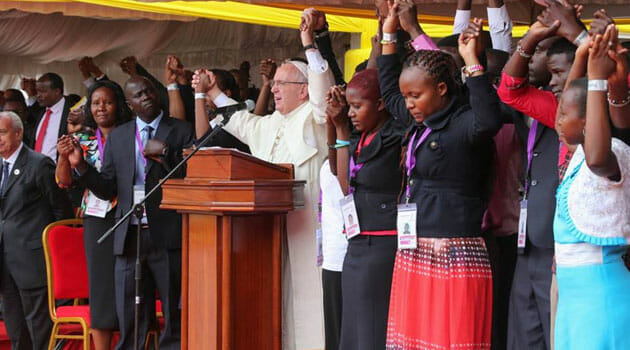 At Mass in the stadium, the Pope invited the “dear Central Africans” to “look to the future and, strengthened by the distance you have already come, resolutely determine to begin a new chapter in the Christian history of your country, to set out towards new horizons and he exhorted every person to be “an artisan of human and spiritual renewal.” The day before, he recalled: “love for our enemies which guards against the temptation of revenge and against the unending spiral of reprisal,” and also that “everywhere, especially where hatred and violence reign, injustice and persecution, Christians are called to witness to the God who is Love.” With these words in her heart, Geneviève recounted an event that she witnessed with her own eyes: A Muslim man walked in during the Mass, and he was clearly visible holding a sign with the words: “God is great.” The Christians applauded him and went up to him and embraced him. They want to live what the Pope is asking, this responsibility in love and in mercy; that open door that leads us all into that grace. And they showed it with that gesture.” “When I arrived I found hardened hearts. Seeing the change that has taken place in the people in just two days has been extraordinary. The Pope’s gesture, opening the Holy Door, was not merely a gesture but a life that he himself has testified to, in the mercy with which he reached out to everyone: he brought this love from God to everyone.”
At Mass in the stadium, the Pope invited the “dear Central Africans” to “look to the future and, strengthened by the distance you have already come, resolutely determine to begin a new chapter in the Christian history of your country, to set out towards new horizons and he exhorted every person to be “an artisan of human and spiritual renewal.” The day before, he recalled: “love for our enemies which guards against the temptation of revenge and against the unending spiral of reprisal,” and also that “everywhere, especially where hatred and violence reign, injustice and persecution, Christians are called to witness to the God who is Love.” With these words in her heart, Geneviève recounted an event that she witnessed with her own eyes: A Muslim man walked in during the Mass, and he was clearly visible holding a sign with the words: “God is great.” The Christians applauded him and went up to him and embraced him. They want to live what the Pope is asking, this responsibility in love and in mercy; that open door that leads us all into that grace. And they showed it with that gesture.” “When I arrived I found hardened hearts. Seeing the change that has taken place in the people in just two days has been extraordinary. The Pope’s gesture, opening the Holy Door, was not merely a gesture but a life that he himself has testified to, in the mercy with which he reached out to everyone: he brought this love from God to everyone.”  The speech by the Mayor of Bangji (and president of the state of transition),” Geneviève explained “placed before the Pope all the sins of our country, and the Mayor didn’t leave out his own responsibility. He asked for God’s pardon, asking the Pope that with his blessing he would invoke pardon upon the whole nation. With all of this in mind, watching Pope Francis open the Holy Door of Mercy was truly exceptional. He didn’t say much, but he knew how to put his finger on the weak point and launch an appeal to all the nations that produce weapons of war. And he called Bangui the spiritual capital of the world. Listening to a country that has shed so much innocent blood being called spiritual capital of the world, was like seeing God coming down to meet us.
The speech by the Mayor of Bangji (and president of the state of transition),” Geneviève explained “placed before the Pope all the sins of our country, and the Mayor didn’t leave out his own responsibility. He asked for God’s pardon, asking the Pope that with his blessing he would invoke pardon upon the whole nation. With all of this in mind, watching Pope Francis open the Holy Door of Mercy was truly exceptional. He didn’t say much, but he knew how to put his finger on the weak point and launch an appeal to all the nations that produce weapons of war. And he called Bangui the spiritual capital of the world. Listening to a country that has shed so much innocent blood being called spiritual capital of the world, was like seeing God coming down to meet us.
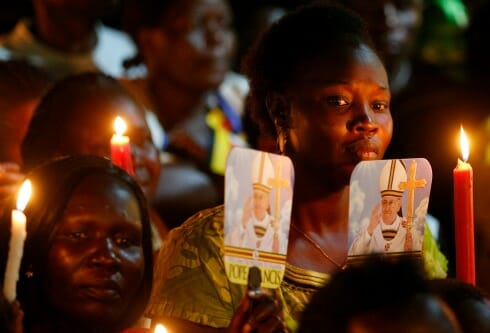
Nov 30, 2015 | Focolare Worldwide
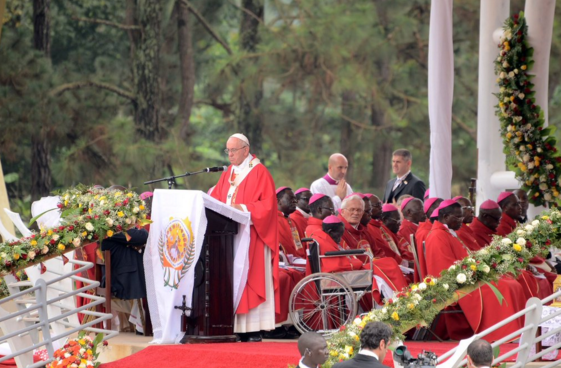
Pope Francis at Munyonyo Catholic Shrine were the first Christians were martyred.
 In his sermon, the Pope, “recognized the Anglican Martyrs who gave their life’s to God’s work and the Catholic Martyrs, whose deaths for Christ testify to the ecumenism of blood. All these witnesses nurtured the gift of the Holy Spirit in their lives and freely gave testimony of their faith in Jesus Christ, even at the cost of their lives, many at such a young age,” commented Simon. “The Ugandan Martyrs are the first martyrs of contemporary Africa who give a witness, as lay people, of a simple faith that is very powerful,” Fr Lombardi, Vatican spokesperson, explains. The Pope’s draws his inspiration from them in his address to the young people when he challenges them to “transform what is negative into positive in their lives”, “hatred into love”, “war into peace”. Among the impressions gathered by Simon was that of a young person called Alinda: “With Jesus we can tear down any obstacle that might stand between us and this will transform our lives. We should not be afraid to ask for help and prayers.”
In his sermon, the Pope, “recognized the Anglican Martyrs who gave their life’s to God’s work and the Catholic Martyrs, whose deaths for Christ testify to the ecumenism of blood. All these witnesses nurtured the gift of the Holy Spirit in their lives and freely gave testimony of their faith in Jesus Christ, even at the cost of their lives, many at such a young age,” commented Simon. “The Ugandan Martyrs are the first martyrs of contemporary Africa who give a witness, as lay people, of a simple faith that is very powerful,” Fr Lombardi, Vatican spokesperson, explains. The Pope’s draws his inspiration from them in his address to the young people when he challenges them to “transform what is negative into positive in their lives”, “hatred into love”, “war into peace”. Among the impressions gathered by Simon was that of a young person called Alinda: “With Jesus we can tear down any obstacle that might stand between us and this will transform our lives. We should not be afraid to ask for help and prayers.”
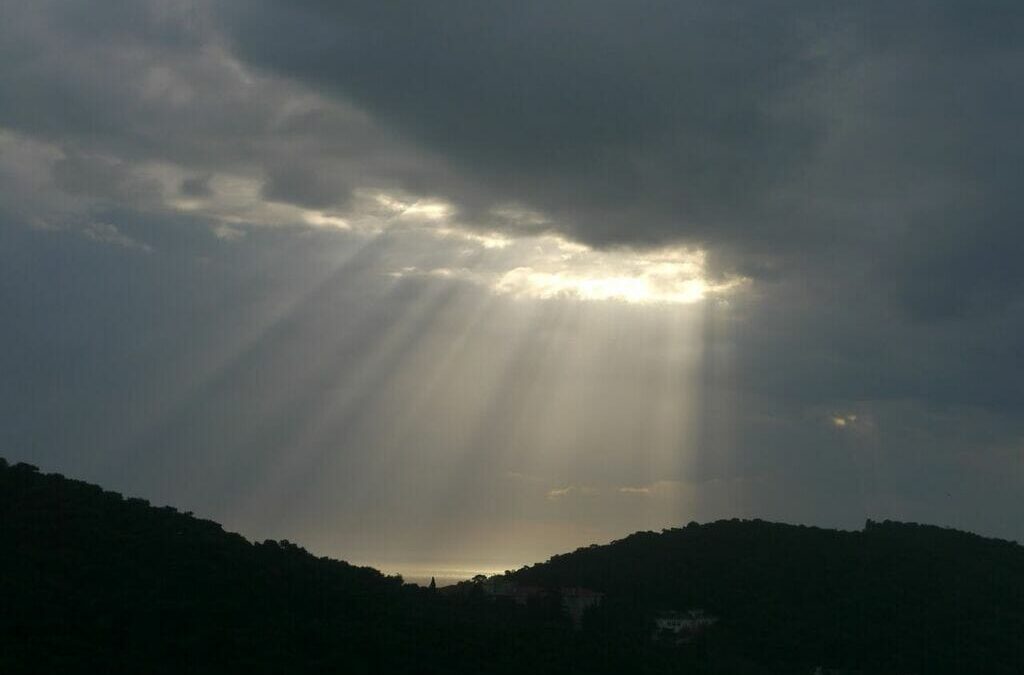
Nov 28, 2015 | Focolare Worldwide
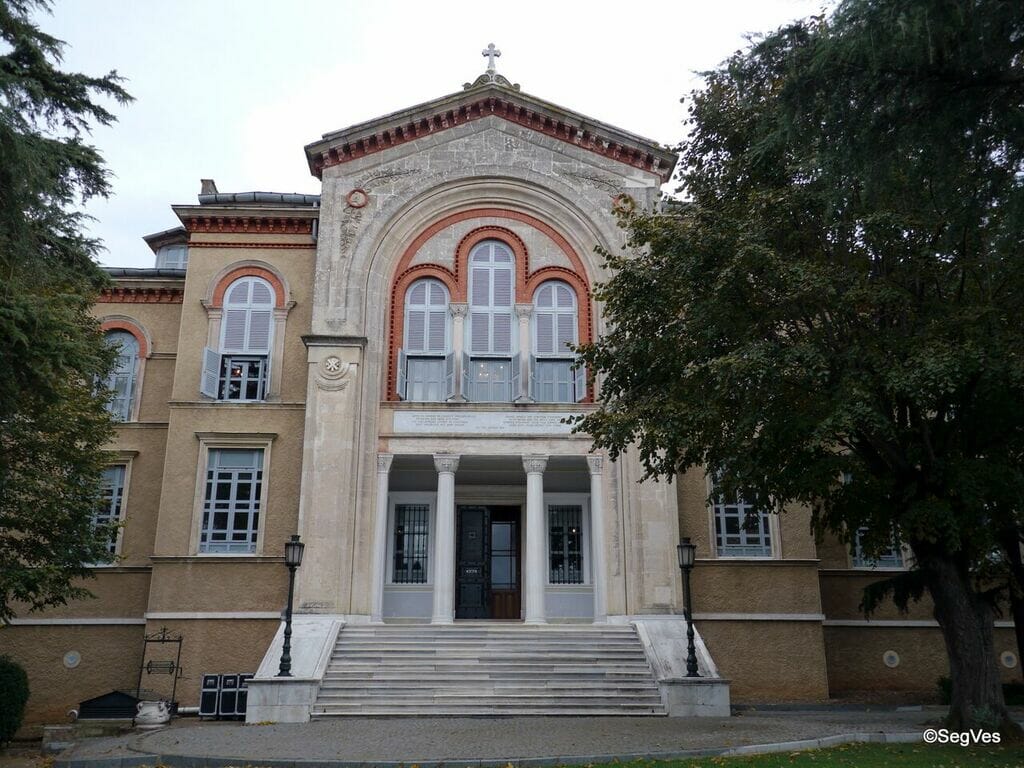 The first part of the Ecumenical Meeting of Bishop Friends of the Focolare concluded on November 27th in the Monastery of the Most Holy Trinity on Halki Island. Cardinal Francis Kriengsak evidenced how the unity amongst the different Christian Churches is at the service of the whole human family. “The diversity is a gift and a mutual enrichment,” he said “but that is possible only by listening without judgement, with the dialogue of life, with the sharing of experiences, with an acceptance that brings the different charisms into harmony.” The challenges and particularities of every church concerning pressing issues are contained in this mutual understanding.
The first part of the Ecumenical Meeting of Bishop Friends of the Focolare concluded on November 27th in the Monastery of the Most Holy Trinity on Halki Island. Cardinal Francis Kriengsak evidenced how the unity amongst the different Christian Churches is at the service of the whole human family. “The diversity is a gift and a mutual enrichment,” he said “but that is possible only by listening without judgement, with the dialogue of life, with the sharing of experiences, with an acceptance that brings the different charisms into harmony.” The challenges and particularities of every church concerning pressing issues are contained in this mutual understanding. 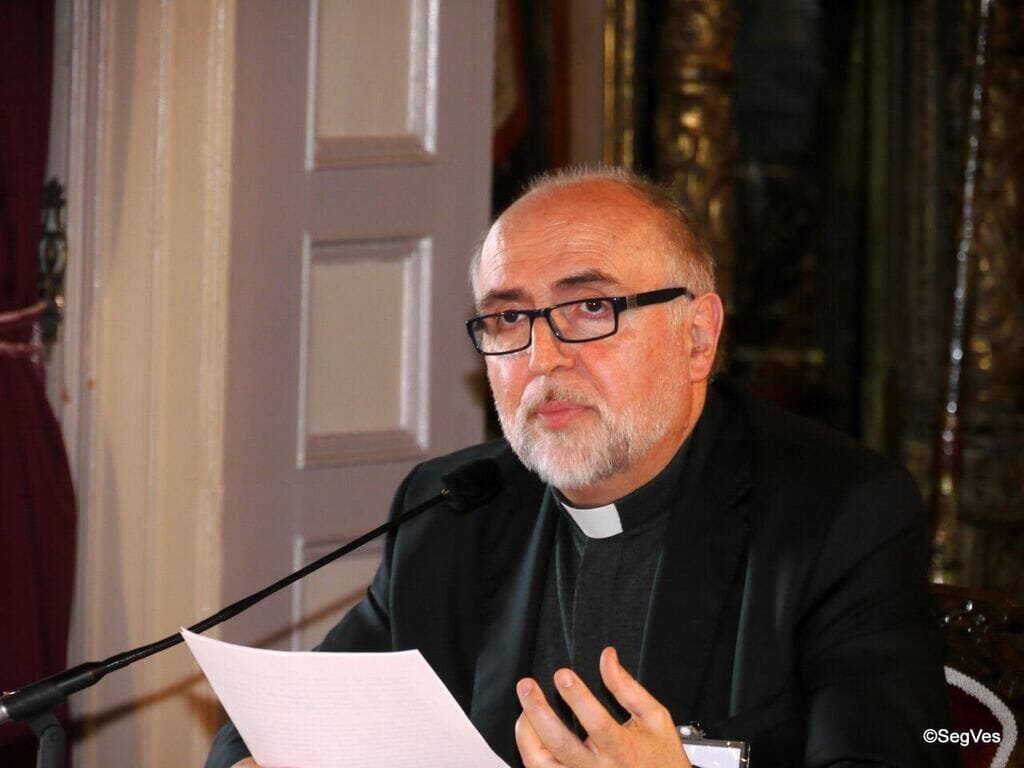 In the morning, Focolare co-president, Jesús Morán, identified several challenges of today’s world, including: globalisation, ultra-modernity, the advent of a piecemeal third world war; and he presented the answers that a culture of unity can give. Quoting from Bishop Klaus Hemmerle, who was a pioneer of the Meeting, he showed the necessity of a listening attitude in today’s world, “Teach me your thought,” Hemmerle would say, “so that I can learn my own proclamation again,” only in this way, claimed Morán, would it be possible to achieve an “inexcusable operation of purification from the religious incrustations” present in our churches. It is these that divide us; the world no longer allows us not only to be disunited, but not even to proclaim the message of Christ as we have up until now. After all, the first Christians did not proclaim a new religion, but a full life, the life they had found in Jesus.” In the dialogue that followed it was clear how deeply those words entered, and there was a strong desire to smooth the way for full and visible communion. Even though the world scene seems to point to the opposite, the co-president invited everyone to hope: “The world as it is today leads me to be more Christian because of this identification with Jesus crucified who permits me to live the deepest Trinitarian communion with my brothers and sisters.” The bishops learned the history of the Monastery of the Most Holy Trinity during their short visit. From 1844 it was a seminary for the formation of Greek Orthodox clergy until 1971 when the Turkey Constitutional Court decided that all private institutes of high education be included in the offer of free public education. The Seminary Council was opposed and the famous school of theology where theologians from around the world studied was closed. In 127 years of activity, 950 students graduated from this school; 330 became bishops; 12 were chosen to be Ecumenical Patriarchs; 2 were elected Patriarchs of Alessandria and 3 from Antioch were ordained priests. The current Abbot of the monastery, Metropolitan Elpidophoros Lambriniadis, gave a presentation titled: “The love of mercy and communion amongst Christians,” an interesting historical reading of the path of dialogue between the Church of the East and the West with a particular mentioning of the role played by Chiara Lubich, foundress of the Focolare, in the rapprochement of the two Churches.
In the morning, Focolare co-president, Jesús Morán, identified several challenges of today’s world, including: globalisation, ultra-modernity, the advent of a piecemeal third world war; and he presented the answers that a culture of unity can give. Quoting from Bishop Klaus Hemmerle, who was a pioneer of the Meeting, he showed the necessity of a listening attitude in today’s world, “Teach me your thought,” Hemmerle would say, “so that I can learn my own proclamation again,” only in this way, claimed Morán, would it be possible to achieve an “inexcusable operation of purification from the religious incrustations” present in our churches. It is these that divide us; the world no longer allows us not only to be disunited, but not even to proclaim the message of Christ as we have up until now. After all, the first Christians did not proclaim a new religion, but a full life, the life they had found in Jesus.” In the dialogue that followed it was clear how deeply those words entered, and there was a strong desire to smooth the way for full and visible communion. Even though the world scene seems to point to the opposite, the co-president invited everyone to hope: “The world as it is today leads me to be more Christian because of this identification with Jesus crucified who permits me to live the deepest Trinitarian communion with my brothers and sisters.” The bishops learned the history of the Monastery of the Most Holy Trinity during their short visit. From 1844 it was a seminary for the formation of Greek Orthodox clergy until 1971 when the Turkey Constitutional Court decided that all private institutes of high education be included in the offer of free public education. The Seminary Council was opposed and the famous school of theology where theologians from around the world studied was closed. In 127 years of activity, 950 students graduated from this school; 330 became bishops; 12 were chosen to be Ecumenical Patriarchs; 2 were elected Patriarchs of Alessandria and 3 from Antioch were ordained priests. The current Abbot of the monastery, Metropolitan Elpidophoros Lambriniadis, gave a presentation titled: “The love of mercy and communion amongst Christians,” an interesting historical reading of the path of dialogue between the Church of the East and the West with a particular mentioning of the role played by Chiara Lubich, foundress of the Focolare, in the rapprochement of the two Churches. 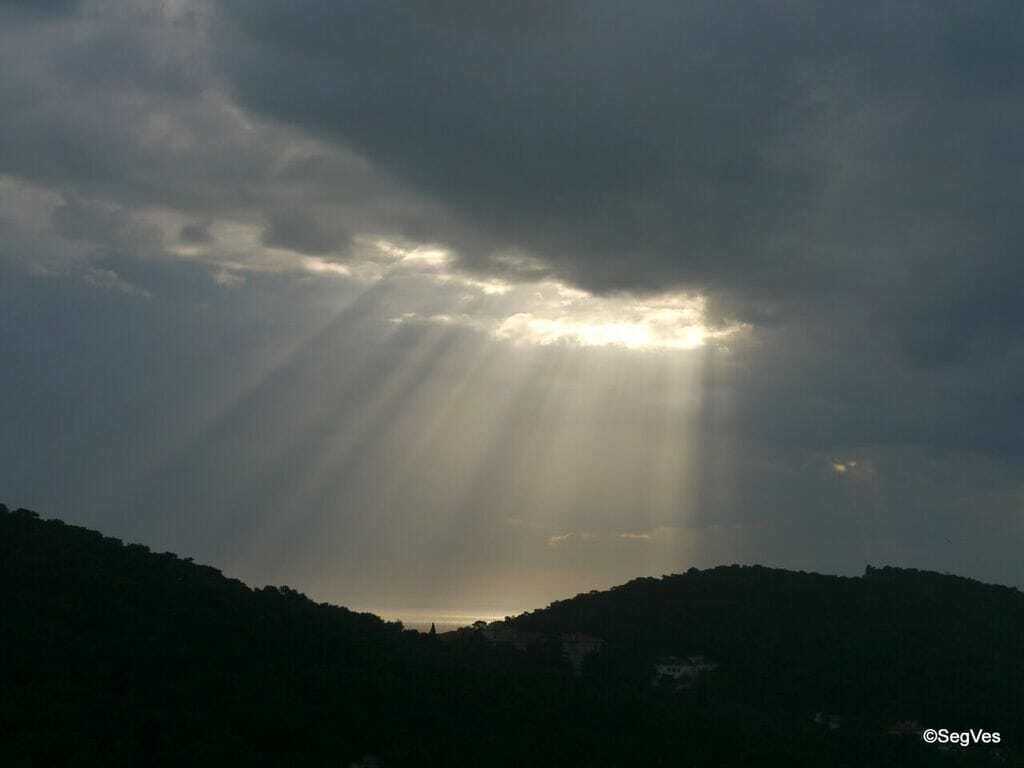 At the conclusion of the first part of the Meeting, the bishops embraced the appeal of Patriarch Bartholomew I, to pray that the School of Theology might be reopened. They also called for the return of the two bishops in Syria, who were kidnapped in April 2013: Greek Orthodox Bishop of Aleppo, Paul Yazigi, and Syro-Orthodox Archbishop Gregorios Yohanna Ibrahim, Bishop Friend of the Focolare and faithful participant at all their gatherings. Now the evening has come and rain is falling lightly on the island. The carts are rolling down the hills carrying a much lighter cargo: brother bishops who are committed to living mutual love so that the Risen Jesus can give his light to the world again. Compiled by: Adriana Avellaneda
At the conclusion of the first part of the Meeting, the bishops embraced the appeal of Patriarch Bartholomew I, to pray that the School of Theology might be reopened. They also called for the return of the two bishops in Syria, who were kidnapped in April 2013: Greek Orthodox Bishop of Aleppo, Paul Yazigi, and Syro-Orthodox Archbishop Gregorios Yohanna Ibrahim, Bishop Friend of the Focolare and faithful participant at all their gatherings. Now the evening has come and rain is falling lightly on the island. The carts are rolling down the hills carrying a much lighter cargo: brother bishops who are committed to living mutual love so that the Risen Jesus can give his light to the world again. Compiled by: Adriana Avellaneda

 What pushed you to become a priest? A 13-year-old girl asked Don Marco, during an informal interview on the many “anecdotes” that have dotted his life and priesthood. «I was not counting on becoming a priest. I had only asked some advice from the people who were older and had more worldly experience than me, so as to see what humanity needs most today. I could have become a teacher or an engineer. I also liked architecture, or travelling. I liked so many things, and was doing well in school. Those were the years of the economic boom and I had all the possibilities. I was uncertain since I had received a university scholarship, but I wanted to be useful. So I booked an appointment with the Bishop. I wanted to ask him what he thought, about what humanity needs most. He was so busy that he did not have time to talk to me, and I was alone for hours, so much so that I thought: “surely humanity doesn’t need me, but perhaps not even the church needs me, and whoever said that you are so important? Perhaps I am not worth anything… but I love Jesus and will love him always, even if I turned out to be useless.” Finally, when the Bishop found time to speak with me, and asked me what I wanted, I didn’t want anything anymore! And so I told him that I could probably collaborate… He was surprised, undecided, but in the end he said: “Yesterday I laid the cornerstone of a church. When this church, will be finished six years from now, it will have no priest. Would you like to be the parish priest of that church?” But my first experience had been a choice of God, first of all, and not that of becoming a priest, but to follow God and love Jesus, even if I was useless, since Jesus in the end, will make you do something. » (Fr. Marco – Italy)
What pushed you to become a priest? A 13-year-old girl asked Don Marco, during an informal interview on the many “anecdotes” that have dotted his life and priesthood. «I was not counting on becoming a priest. I had only asked some advice from the people who were older and had more worldly experience than me, so as to see what humanity needs most today. I could have become a teacher or an engineer. I also liked architecture, or travelling. I liked so many things, and was doing well in school. Those were the years of the economic boom and I had all the possibilities. I was uncertain since I had received a university scholarship, but I wanted to be useful. So I booked an appointment with the Bishop. I wanted to ask him what he thought, about what humanity needs most. He was so busy that he did not have time to talk to me, and I was alone for hours, so much so that I thought: “surely humanity doesn’t need me, but perhaps not even the church needs me, and whoever said that you are so important? Perhaps I am not worth anything… but I love Jesus and will love him always, even if I turned out to be useless.” Finally, when the Bishop found time to speak with me, and asked me what I wanted, I didn’t want anything anymore! And so I told him that I could probably collaborate… He was surprised, undecided, but in the end he said: “Yesterday I laid the cornerstone of a church. When this church, will be finished six years from now, it will have no priest. Would you like to be the parish priest of that church?” But my first experience had been a choice of God, first of all, and not that of becoming a priest, but to follow God and love Jesus, even if I was useless, since Jesus in the end, will make you do something. » (Fr. Marco – Italy) 



 Today Bangui becomes the spiritual capital of the world. The Holy Year of Mercy is anticipated in this land, a land that suffers from several years of hatred and war, misunderstanding and lack of peace. But there are also all the lands that are bearing the cross of war. Bangui becomes the spiritual capital of the prayer to the Father for mercy. All of us ask for peace, mercy, reconciliation, pardon and love. For Bangui, for the Central African Republic, for the whole world, for the lands that suffer from war, we ask for peace!” These were the words of Pope Francis before
Today Bangui becomes the spiritual capital of the world. The Holy Year of Mercy is anticipated in this land, a land that suffers from several years of hatred and war, misunderstanding and lack of peace. But there are also all the lands that are bearing the cross of war. Bangui becomes the spiritual capital of the prayer to the Father for mercy. All of us ask for peace, mercy, reconciliation, pardon and love. For Bangui, for the Central African Republic, for the whole world, for the lands that suffer from war, we ask for peace!” These were the words of Pope Francis before 



 The first part of the
The first part of the In the morning, Focolare co-president,
In the morning, Focolare co-president,  At the conclusion of the first part of the Meeting, the bishops embraced the appeal of
At the conclusion of the first part of the Meeting, the bishops embraced the appeal of